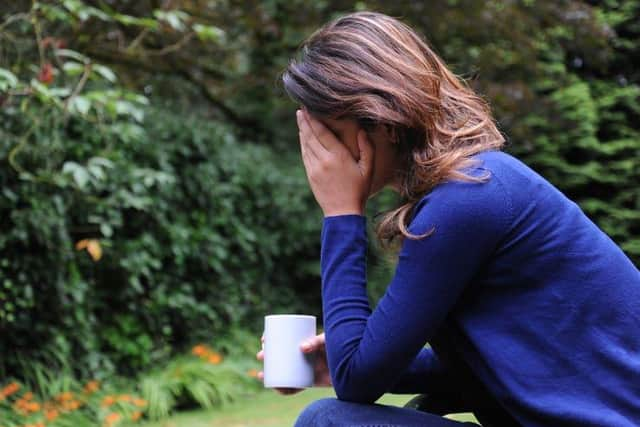Calls for more funding to tackle rising mental health crisis in Notts
and live on Freeview channel 276
The coronavirus pandemic has contributed to more people reaching crisis point, because they are not receiving the help they need in time, according to mental health charity Mind.
NHS Digital data shows in May, crisis teams at Nottinghamshire Healthcare NHS Trust received about 485 urgent new referrals, including 95 potentially life-threatening emergency cases.
Advertisement
Hide AdAdvertisement
Hide AdAt the end of the same month, there were about 670 people already subject to crisis care plans managed by the trust.


Crisis teams, which offer an alternative to hospital admission where appropriate, are usually made up of experienced mental health staff and may include psychiatrists, social workers and nurses.
They step in to help where someone is considered to be experiencing a mental health crisis and may otherwise be admitted for inpatient support.
New referrals made on an urgent or emergency basis to Nottinghamshire Healthcare Trust’s crisis teams in May were down from the 530 recorded in May 2020, but higher than the 360 received in 2019.
Advertisement
Hide AdAdvertisement
Hide AdDr Julie Attfield, trust executive director of local mental health services, said: “Throughout the pandemic, our teams have been working hard to continue to provide high-quality mental health services, including support for people in crisis.
“While we have seen referrals increase, particularly to our crisis services, alongside our partners in health and social care and the voluntary sector we have made significant investment into new services over the last year to respond to the anticipated demand.
“These include introducing a 24/7, all-age mental health crisis phone line, opening a number of dedicated crisis sanctuaries across the city and county, while at the same time our CAMHS – child and adolescent mental health services – and school Mental Health Support Teams have adapted their ways of working to ensure young people could still access support during lockdown periods.
“We’re positive about plans for further investment in mental health services, in line with the NHS Ten Year Plan, which is enabling us to expand our eating disorder services and provide more mental health support in the community by working with GP Practices in the Primary Care Networks.
“We hope this will provide a broader range of services and much easier and quicker access to mental health support.
“We will continue to work with all our partners to further invest in and improve children’s, young people’s and adult mental health services across Nottinghamshire.”
‘People weren’t getting the right support’
Advertisement
Hide AdAdvertisement
Hide AdLeila Reyburn, from Mind, said the pandemic had affected the scale and severity of mental health problems, with more people experiencing issues.
Calling for the Government to provide sustainable funding for mental health services, she said: “Even before the pandemic, many people weren’t getting the right support.
“The increase in urgent and emergency crisis referrals indicates people are not getting the support they need in time and are reaching crisis point as a result – including self-harming, experiencing psychosis and suicidal thoughts.
“Many services in the community have been forced to restrict what they can provide, or even close.
Advertisement
Hide AdAdvertisement
Hide Ad“When people do not get the right support early on, they are far more likely to end up in crisis."
Across England, there were more than 28,000 emergency or urgent referrals made in May this year, up from about 25,700 in 2020 and 26,500 two years earlier.
Nationally, there has also been a stark rise in emergency referrals for children since the pandemic hit, from 644 in 2019 to 943 this year.
A Government spokesman said: “Covid-19 has affected everyone in the UK and we recognise it has had a disproportionate impact on certain groups of people.
“Throughout the pandemic, community and crisis services have continued to provide support.
“As we look beyond the pandemic, we remain committed to expanding and transforming mental health services in England.
Advertisement
Hide AdAdvertisement
Hide Ad“Our mental health recovery action plan will ensure we offer the right support to help people with a variety of mental health conditions.”
